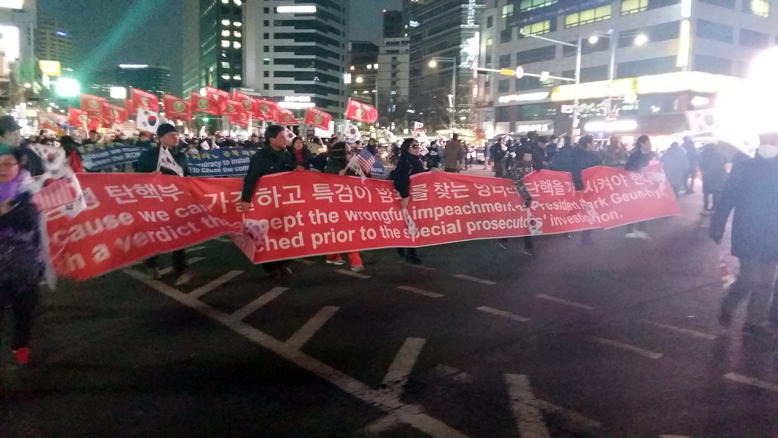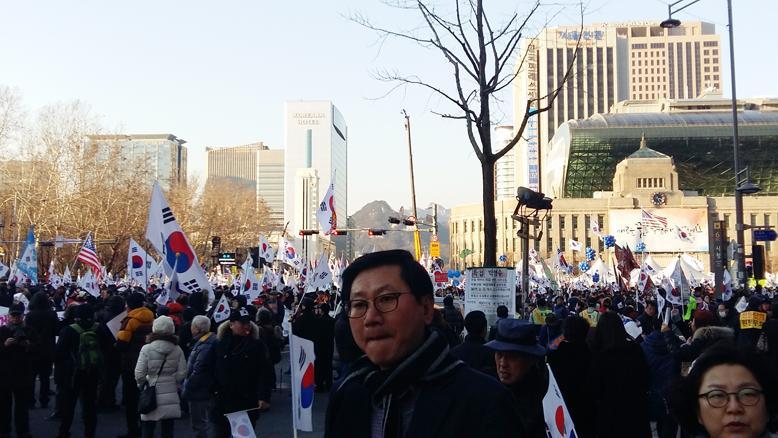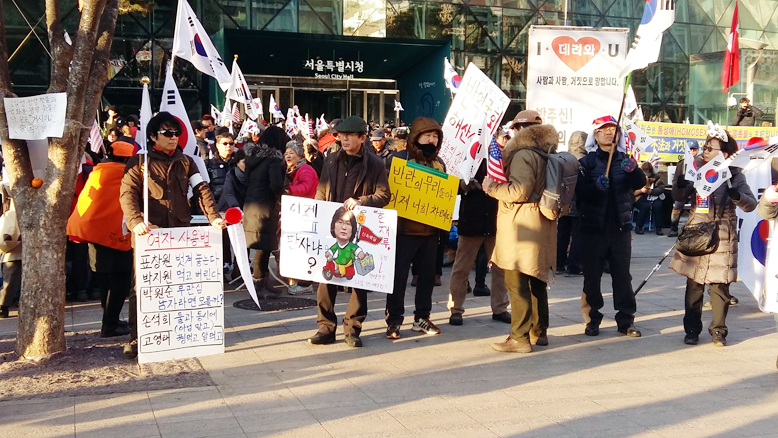
Amidst the chaos surrounding President Park Geun-Hye’s alleged impropriety, the vast majority of the Korean citizens believed that President Park should be impeached. Accused of extorting money from the large family-owned business conglomerates known as chaebols, Park Geun-Hye was impeached on the on December 9th.
However, many conservatives have labeled the impeachment process as an unjust process due to its unconstitutional nature. President Park’s counsel has argued that an impeachment voting requires the National Assembly to address each accusation individually; instead, the National Assembly lumped together the impeachment resolution under an all or nothing vote.
As the Constitutional Court reviewed the impeachment request, several avid conservative supporters took their flags to the streets in what is known as the Taegeukgi protests. They argued that Constitutional Court is rushing the proceeding to rule before another judge retires in March. The latest challenges from the President Park’s counsel have only fueled these protests.
Conservatives in South Korea rallied under the Taegukgi, the Korean national flag, in order to protest the impeachment process of Park Geun-Hye. Many of these protests began as small movements due to the on-going negative reports of Park Geun-Hye during the beginning of the impeachment process. However, the arguments made by the President’s defense counsel have fueled more avid support.

“The recent impeachment is unfair and is taking away power from the legitimate government,” claimed Hong Soo-yeun, an activist from the citizen coalition of guarding liberal democracy who took to the streets during the Taegukgi protest on February 25th. The citizen coalition of liberal democracy is an organization that aims to promote and protect liberal democracy in South Korea. Hong Soo-Yeun, like many of the teagukgi participants, had come to march on the streets in February 25th to protest against the impeachment.
With tens of thousands of people attending Taegukgi protest every Saturday, the tension in South Korea grew for the verdict from the constitutional court. The protest was especially vocal during March 1st, South Korea’s Independence Movement Day.

The Taegukgi protest was a direct counter to the candlelight protests that have been held to pressure the national assembly to impeach Park Geun-Hye.
The bigger implication of this debate over impeaching Park Geun-hye lies with the precedent that the court will set. Since the court deemed Park Geun-hye’s impeachment process as constitutional, the constitutionally protected president’s term may have been weakened, which threatens the stability of the Korean government as a whole.
After all, now that the impeachment process has become easier to initiate and process, the National Assembly may more frequently resort to impeachment to challenge the President and gain power over the executive branch. The South Korean government, like America, has been divided into three branches to prevent an imbalance in authority and to prevent corruption.
Any significant factor that might disrupt the balance of power between the three branches can lead to a more unstable government. The primary purpose of a government is to protect its citizens and an unstable government would have difficulty doing so. The Constitutional Court’s decision to authorize the impeachment of Park Geun Hye March may not have only decided the fate of President Park but also the stability of the Republic of Korea. It is imperative that the people of this nation to thoroughly understand both sides of a situation before coming to a definitive conclusion.

Alexander Joonhwan Song
Grade 11
Seoul International School
By Alexander Joonhwan Song

